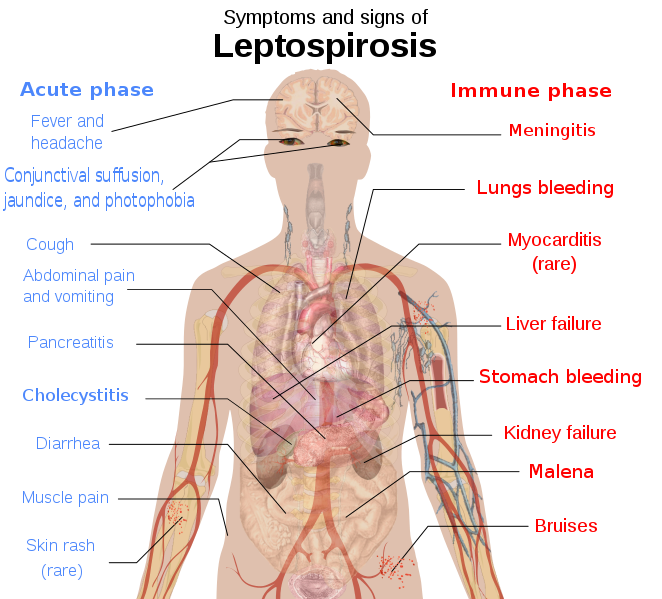Fiji’s Ministry of Health has dispatched another team of medical officers to assist health officers in Kadavu in ensuring that clinical management for leptospirosis is optimal.
There were 31 reported cases of leptospirosis, including one death, between January and June 2023 on the island.
Divisional Medical Officer Eastern Dr Sravaniya Dasi said they have been urging residents to take precautions to protect themselves and to present themselves early to the nearest health facility to prevent serious disease and death.
Awareness campaigns have been conducted with the support of schools and community health workers who are also reporting on sick persons as part of disease surveillance.
Signs & Symptoms
Leptospirosis is caused by bacteria that are found in the urine of infected animals, such as rodents, dogs, and livestock. Humans can become infected through contact with contaminated water, soil, or mud. The bacteria can also enter the body through breaks in the skin, such as cuts or scratches.
The symptoms of leptospirosis can vary from mild to severe and can include fever, headache, muscle aches, chills, vomiting, and diarrhea. In some cases, the disease can lead to more serious complications, such as kidney failure, liver failure, and respiratory problems.
Leptospirosis is a serious disease that can be prevented. By taking the following precautions, you can help protect yourself and your family from this infection:
• Avoid contact with floodwaters and other contaminated water.
• Wear protective clothing, such as boots, gloves, and long sleeves, when working or playing in areas where there is a risk of exposure to contaminated water or when handling animals.
• Keep alert for rodents and avoid contact with their urine and droppings. Rat baits are used to control rodent populations and prevent the spread of disease.
• Wash your hands thoroughly with soap and water after contact with animals or contaminated water as Leptospira bacteria are killed by soap and disinfection.
• Cover cuts and scratches.









